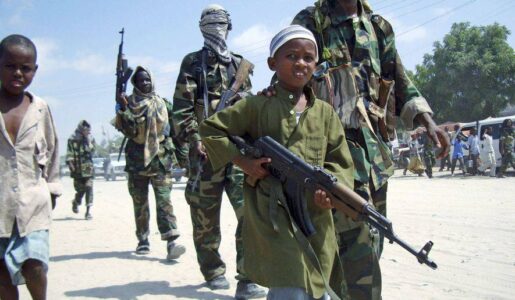
Africa is providing safe haven to Islamist terrorist groups
Africa is fast-becoming a region where terrorist groups like the Islamic State and al-Qaeda that have been battered by attacks from the West are reconstituting their numbers by co-opting local fighters into their ranks, a top special forces commander said Wednesday.
Air Force Maj. Gen. Dagvin Anderson, head of special operations for U.S. Africa Command, said both terrorist groups have frequently stated they intend to attack and undermine the United States.
“Africa is providing them that safe haven, that venue where they can establish themselves,” he said Wednesday during an online interview with the American Enterprise Institute.
Some regional militants in Africa are now primarily identifying themselves as members of transnational terrorist groups like al-Qaeda rather than their local tribes. Once they become aligned, their goals have changed, Maj. Gen. Anderson said.
“They’re identifying themselves as al-Qaeda. They often carry pictures of Bin Laden,” he said.
Affiliates of the Islamic State coming from Mozambique have become more violent and a greater threat to the region, Maj. Gen. Anderson said.
With their historical connections to the area, the French have taken a lead role in the fight against extremism in Africa. The pressure has changed the narrative, Maj. Gen. Anderson said.
“They’re spreading out. They’re much more blunt and direct,” he said. “They appeal to the disaffected who want to take action.”
Even without Bin Laden, al-Qaeda remains a threat in Africa. But unlike ISIS, they tend to operate more under the radar, he said.
“They don’t want to draw attention from the West, especially the United States,” he said. “They are very cautious (and) stay below that threshold.”
The most imminent threat in the region is al-Shabaab, a jihadi group based in East Africa that has sworn allegiance to al-Qaeda. Although they have largely been contained to the southern parts of Somalia, it has created a de facto safe haven for them, Maj. Gen. Anderson said.
Source: Washington Times





